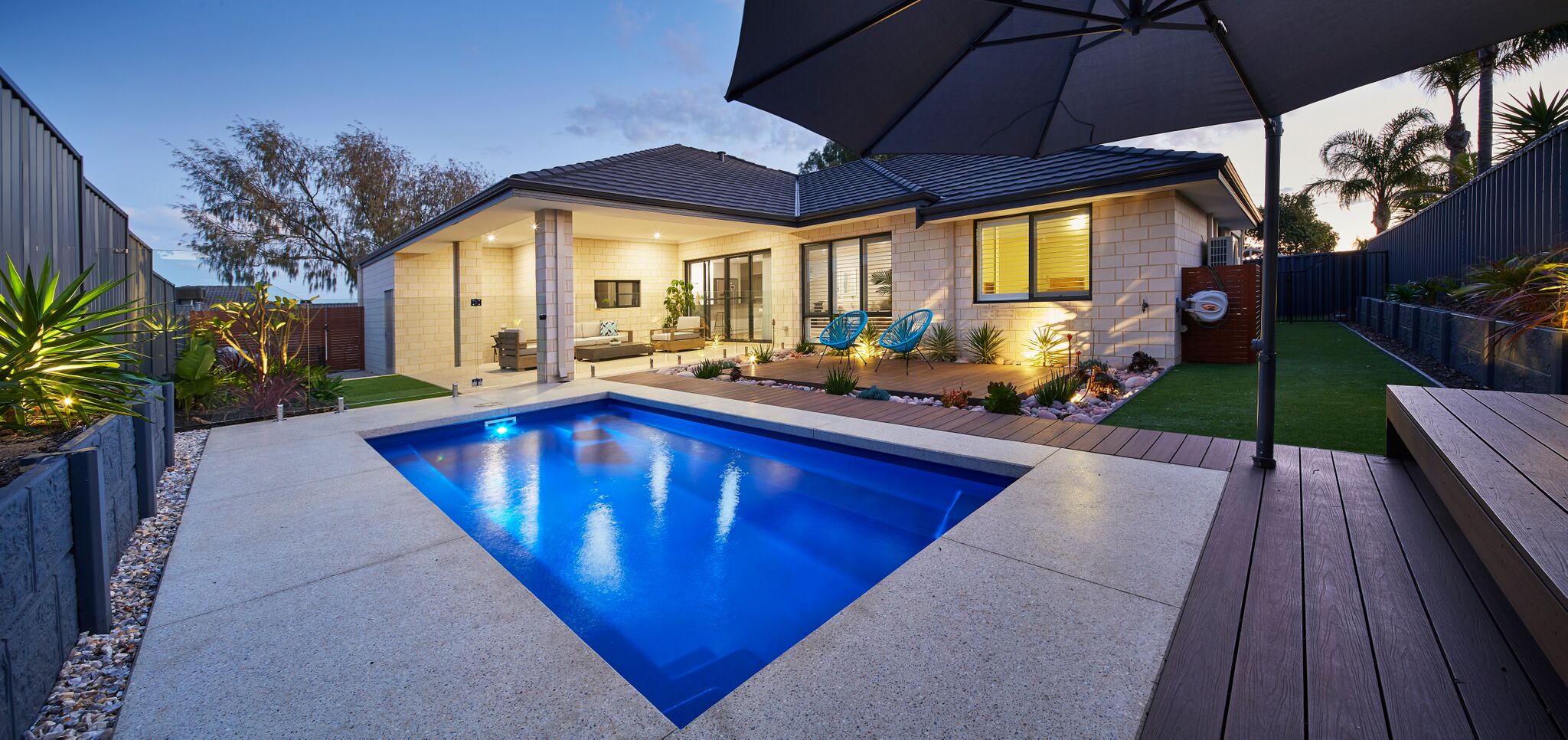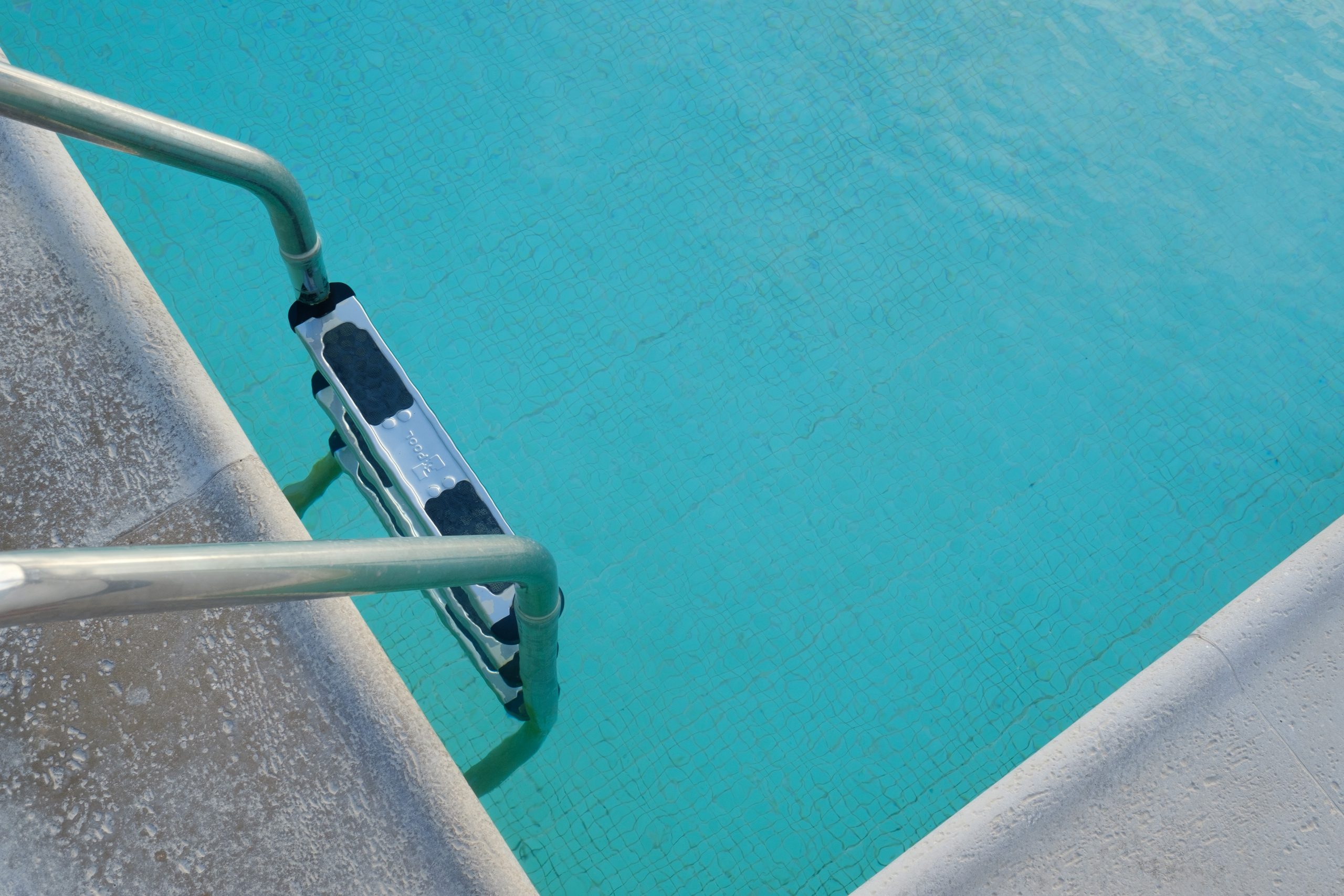Fibreglass Vs Concrete
Before diving into any big commitment you want to be sure you are making the right choice and a swimming pool is no exception. With various pool types to choose from you might not be aware of the pros and cons that come with each. Here we explore the two most popular pool options to give you an idea of which one will work best for you and your family.

Fibreglass pools
Advantages
Extreme tactile strength and durability:
Fibreglass technology has come a long way over the years and fibreglass pools are designed to be extremely strong and long lasting. They are skillfully manufactured to withstand varied weather conditions and temperatures without the risk or splitting or cracking. A good quality fibreglass pool will maintain its appearance and structure over its lifespan. Many reputable fibreglass pool companies offer generous warranties with their shells as they are confident in their quality.
Little maintenance needed:
A big advantage to owning a fibreglass pool is they are easy to maintain and require very little commitment from the owner to keep them clean. Fibreglass pools have a smooth and glossy interior surface that isn’t porous. This gives algae and bacteria nothing to attach to in order to grow and multiple. As a result, they require far less chemicals, time, and effort to maintain the water quality. This makes them an ecologically sound choice when compared to concrete.
Economical to heat:
If a heating system is something you would consider for your new pool, fibreglass is a great option. Fibreglass naturally insulates the water and conserves heat for an extended period of time, this means that the heating system doesn’t have to work in excess to heat the water which can reduce your running costs.
Fast installation:
Fibreglass pools are simple and fast to install. Once you have chosen the style of pool and all paperwork has been lodged and approved, your pool can be installed in a matter of 7 days. Concrete pool installations tend to be far longer with an average sized pool taking anywhere from 3 to 6 months to build.
Modern and stylish designs:
Some may have the misconception that purchasing a fibreglass pool gives you a narrow selection of pools to choose from however, this isn’t the case. Fibreglass pools come in an array of shapes, colours and designs that are modern and stylish. They can be designed to include many inclusions such as non-slip surfaces, advanced colour technology and tanning ledges. Extras such as these can enhance the safety and the appeal of the pool.
Practically no ongoing care:
Unlike the surface of a concrete pool that needs to be resurfaced every 10 to 15 years, the interior of a fibreglass pool is designed to be fade, chemical, water and UV resistant so it will never need replacing.
Suitable for saltwater chlorinators:
As mentioned, the interior of a fibreglass pool is extremely resistant which makes it suitable for a saltwater chlorinator system. Salt has nil effect on the surface of the shell. Unfortunately for concrete pool owners, salt is not an option. Salt is a sought-after sanitising option for pools as it doesn’t have caustic effects on the eyes and body.
Drawbacks
You cannot custom make a fibreglass pool:
Fibreglass pools are premade in a factory on a mould. Because of this you cannot customise the depth, shape, or size. If you decide to get a fibreglass pool, you will be selecting from the companies range rather than designing it yourself. The good news is most fibreglass pool businesses have an expansive selection of pools to choose and more times than not people find exactly what they’re looking for.

Concrete pools
Advantages
Unlimited design options:
The best thing about concrete pools has to be that you can customise the style, shape, and depth to your specific measurements. As concrete pools are built from scratch in your backyard, you can have it precisely how you want it. Concrete is a good option if you want an exact depth or shape.
Extremely strong and durable:
Concrete pools have made a name for themselves over the years for having superior structural strength and durability. If maintained as required, they should last for more than 30 years.
You can choose the interior finish:
Choosing a concrete pool for your home provides you with an opportunity to select from a wide range of finishes. Some interior surfaces for concrete pools include pebble, tiles, and quartz. The finishes vary in price depending on which one you choose and you can change it over the years to modernise its look.
Drawbacks
Time they take to build:
Building a concrete pool is typically labour intensive and takes a significant amount of time to complete. This proves to be an inconvenience for homeowners when they have pool builders at their home day in, day out for months on end.
Costly to install:
Concrete is the most expensive swimming pool option on the market with an average sized concrete swimming pool costing around 20% more than a fibreglass pool the same size.
Rough exterior:
The inside of a concrete pool is commonly finished with aggregate which is rough. When swimming or playing around in the pool it can cause grazes. It is also known to be uncomfortable to walk on.
High upkeep:
As concrete is porous it provides the ideal location for algae and bacteria to settle in and multiply. This means more money and effort is needed to keep the water clean. To reduce the risk of this happening, concrete pool owners should scrub the interior of the pool every other week with a pool brush to remove dirt and debris, as this makes the perfect food for algae and bacteria.
Expensive ongoing care:
A concrete pools interior surface must be resurfaced every 10 to 15 years. This doesn’t come cheap, costing approximately $10,000. This can add up to be a significant cost over the lifetime of the pool and will need to be taken into consideration when establishing how much money you can put towards the ongoing care of your pool.
Not suitable for salt chlorinators:
A saltwater system is not an option for concrete pools. This is because the highly abrasive nature of dissolved salt comprises the interior surface of a concrete pool. Which means you would need to get the pool resurfaced much more regularly than normally needed to ensure the interior isn’t jeopardised.

Time to evaluate the advantages and drawbacks
Like anything you’re investing your hard-earned money into you want to ensure it’s a worthwhile investment. Evaluating the advantages and drawbacks for each type of pool can help you decide what you want from a pool and how much time and money you are willing to spend on it. Fibreglass pools have drastically grown in popularity over the years and that is because the benefits that they offer are unmatched by other pool types.
Here at Factory Pools Perth we are pool specialists and we take immense pride in offering our customers superior quality fibreglass pools that are unrivalled by other types available on the market. To discuss one of state-of-the-art pools for your home, get in touch with our friendly team today.

